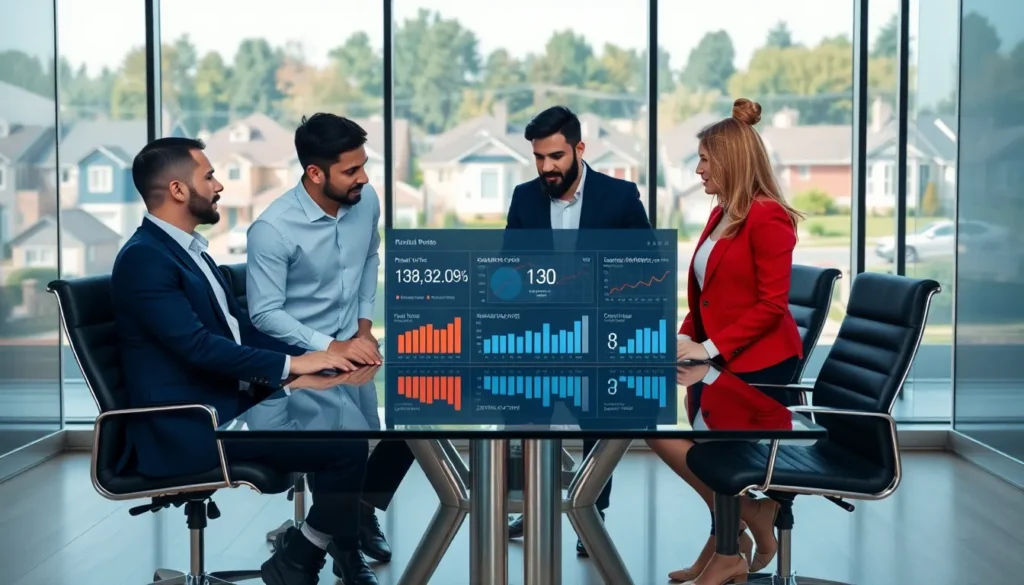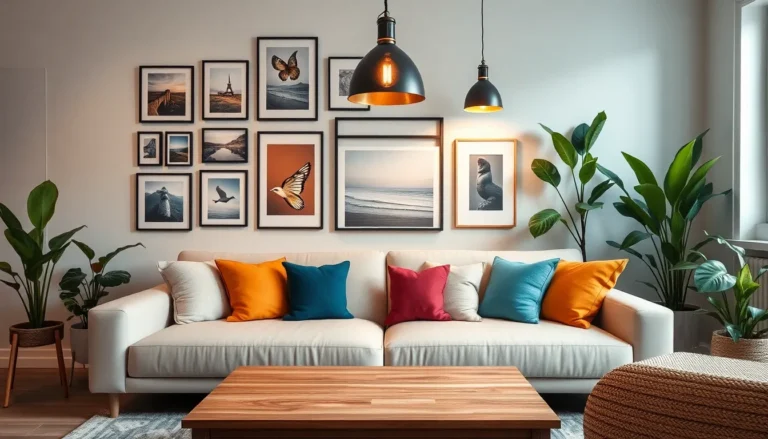Renting out a home might sound like a daunting venture, but fear not. With a pinch of savvy, a sprinkle of humor, and a solid plan, anyone can transform their castle into a cash-generating kingdom. Imagine sipping coffee on your couch, all while your tenant is covering your mortgage. Sounds dreamy, right? Spoiler alert: it can be your reality. Let’s jump into the nitty-gritty of turning your humble abode into a rental haven, shall we?
Table of Contents
ToggleUnderstanding The Rental Market

Researching Local Rental Prices
Before setting the rental price for your home, it’s crucial to understand what comparable properties are charging in your area. This isn’t about just plucking a number out of thin air: that could leave you compromising your earnings or scaring away potential tenants.
Conduct some online research, check listing sites, and maybe even take a stroll through your neighborhood. Is that cute two-bedroom across the street going for $1,800? Jump into the rental market like a detective on a mission. Understanding nuances such as seasonal changes in demand can also give you an edge.
Identifying Target Tenants
Next on the agenda is pinpointing who your ideal tenant might be. Are they a family? Young professionals? College students? Each target group has different needs and expectations. By defining your audience, you can tailor your advertising and even the layout of your home to attract the right renters. A cozy backyard may be a selling point for a family, while high-speed Wi-Fi will hook that young tech-savvy couple.
Preparing Your Home For Rent
Essential Repairs And Upgrades
It’s time to put on your handyman hat. Before you think of welcoming tenants into your space, ensure everything is in tip-top shape. A leaky faucet or a rattling doorknob isn’t just annoying: it can create a bad first impression. Consider making essential repairs and maybe even a few upgrades. Fresh paint, modern fixtures, or a new appliance can elevate your home’s appeal significantly, possibly leading to higher rental income.
Staging Your Home For Potential Renters
Staging isn’t just for the pros in real estate: it’s your secret weapon too. A well-staged home allows potential tenants to envision their lives within those walls. Declutter, depersonalize, and neutralize. It’s not about stripping the space of personality, but rather allowing others to imagine their story unfolding there. A little sprucing up can go a long way in enticing renters.
Legal Considerations When Renting Out Your Home
Lease Agreements And Rental Contracts
Now that your home is looking pristine, let’s talk legalities. First things first, have a solid lease agreement ready to roll. This document delineates the rules of engagement, covering crucial areas like payment terms, duration of the lease, and what happens if things go haywire.
Consulting a lawyer isn’t just a good idea: it’s often essential, especially if you want to avoid any future misunderstandings with risqué tenant situations.
Landlord Responsibilities And Rights
Understand your rights and responsibilities as a landlord. It’s a tricky dance: you have to keep the balance right. You want to provide a safe and livable environment, but you also have the right to protect your property. Learning about local laws can save you headaches down the line. Stay informed about regulations governing eviction processes, safety standards, and tenant privacy laws.
Marketing Your Rental Property
Choosing The Right Advertising Platforms
In this digital age, getting the word out about your rental property is easier than ever. Social media, rental sites, and community boards can be your best friends. Choose platforms that align with your target tenants to maximize your reach. Perhaps a listing on a popular rental website is the way to go, or maybe a neighborhood Facebook group could bring in local prospects. The options are endless.
Creating Compelling Listings And Photos
Your rental listing is like a first date: you want to put your best foot forward. Use high-quality photos and creative descriptions that highlight your home’s charm. Don’t just note that you have a pool: evoke the imagery. “Imagine summer weekends spent splashing in your own private paradise…” Enthralling descriptions can capture a prospective renter’s imagination and draw them in like a moth to a flame.
Screening Potential Tenants
Conducting Background Checks
So, the applications are rolling in, and it’s time to separate the wheat from the chaff. Conducting thorough background checks is essential. This includes previous rental history, credit checks, and even criminal background checks. This step helps ensure that your chosen tenant will treat your home with respect. It can feel a bit invasive, but remember, it’s about protecting your investment.
Interviewing Prospective Tenants
Don’t shy away from interviews. This is your opportunity to meet potential tenants and gauge their suitability. Prepare a list of questions that cover everything from their rental history to lifestyle choices. This will not only help you assess fit but may also help ease your nerves about letting someone new into your cherished space.
Managing Your Rental Property
Finding A Property Management Company
If managing a rental sounds like a logistical nightmare, hiring a property management company might be the ticket. They serve as the middleman, taking care of everything from tenant communication to maintenance issues. While this service comes at a cost, it can save you a significant headache if you’re not keen on being a hands-on landlord.
Handling Maintenance Requests
Even with the best of preparations, maintenance requests will arise. Be prompt in addressing these concerns: it keeps tenants happy and ensures your property remains in good shape. Consider setting up a system for reporting issues and determining the best course of action: be it a DIY fix or calling in the professionals. Keeping tenants satisfied can mean less turn-over, which saves you money in the long run.






